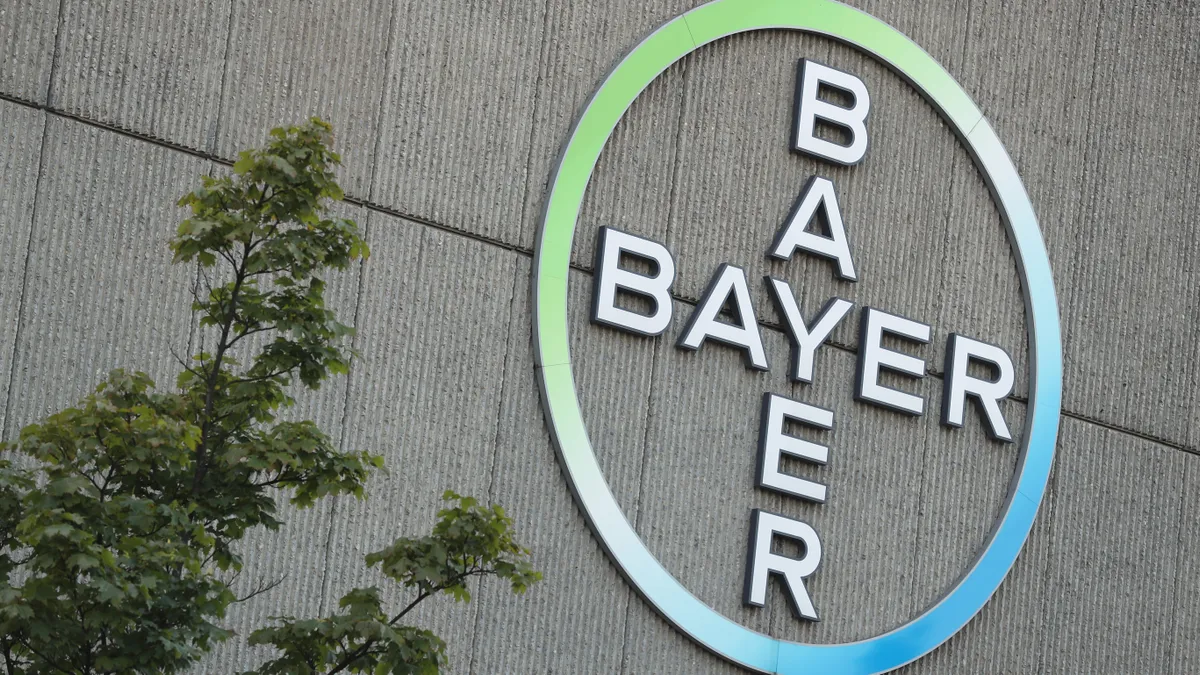Bayer is keeping its three core businesses under one roof, at least for now, in a decision likely to ruffle some of the company’s investors.
Speaking to shareholders Tuesday, Bill Anderson, the former Roche executive and recently minted Bayer CEO, said he and his team have been “seriously” evaluating the structure of the company. The German health conglomerate operates in pharmaceuticals, consumer health and, since the acquisition of Monsanto in 2018, crop sciences, with the overall organization having nearly 100,000 employees at the end of last year.
Anderson has been candid about a need for change at the company, especially in the amount of senior leadership and bureaucracy. “There are still 12 layers between me and our customers,” he said late last year. “That’s simply too much.” By January, Bayer had announced plans to lay off a “significant” portion of its workforce.
Bayer shares, which trade on the German stock exchange, have lost more than half their value over the past 12 months.
According to Reuters, at least one activist investor has been pushing for the company to split up. Executives considered this option during a broader strategic review, but ultimately concluded it would take up too many resources without fixing some of Bayer’s underlying issues.
“In short, on the question of structure, our answer is ‘not now’ — and this shouldn’t be misunderstood as ‘never,’” Anderson said in prepared remarks. “Of course, we will keep an open mind. We’ll always do that. But our priority is on tackling our challenges, boosting performance, and creating strategic flexibility. We are convinced that this approach is what’s best for Bayer.”
Anderson explained that four “broken areas” in Bayer’s business — litigation, debt levels, bureaucracy, and the research pipeline and loss of patent protection in its pharmaceutical division — make any kind of major structural change extremely difficult. For example, spinning out a division through an initial public offering “would require an all-hands-on deck effort” for up to two years, and could raise leverage ratios of both Bayer and the new company.
As for a potential sale, Anderson said that would only be relevant to Bayer’s consumer health business. While such a deal would bring in cash to pay down debts, it could also carry “significant costs and tax leakage.” Looking at other, similar sales, Anderson noted, too, that valuations “aren’t so strong at the moment.”
Moving forward, Bayer’s focus will be addressing those four pain points.
At the top of the board of directors’ agenda, according to Anderson, is the litigation facing Monsanto, which has been accused of selling products that made people sick and caused cancer. In December, a jury in Washington state determined Monsanto should pay $857 million for its role in producing chemicals known as PCBs. And in February, a U.S. appeals court refused to dismiss a lawsuit pertaining to Monsanto’s weed killer Roundup.
Bayer won in another Roundup trial last week, though it still faces thousands of other lawsuits related to the product. “We will defend ourselves vigorously,” Anderson said. “We welcome positive outcomes like the ones we saw on Friday, and we will appeal every unfavorable verdict.”
As for the issues in the pharmaceuticals division, Anderson believes these represent the “biggest lever to recover value for the company.” He highlighted how Bayer is developing a “strong early pipeline,” having last year submitted eight applications to move drugs into human testing.
Still, “there’s no doubt we are facing some difficult years” as key patents for the company’s blood thinner Xarelto and eye medicine Eylea are set to expire. Bayer recorded 18 billion euros, or roughly $19.5 billion, in pharmaceutical sales for 2023, and expects that figure could stay flat or decrease as much as 4% this year.
Bayer stock fell more than 6% Tuesday, to trade around 26.30 euros.












